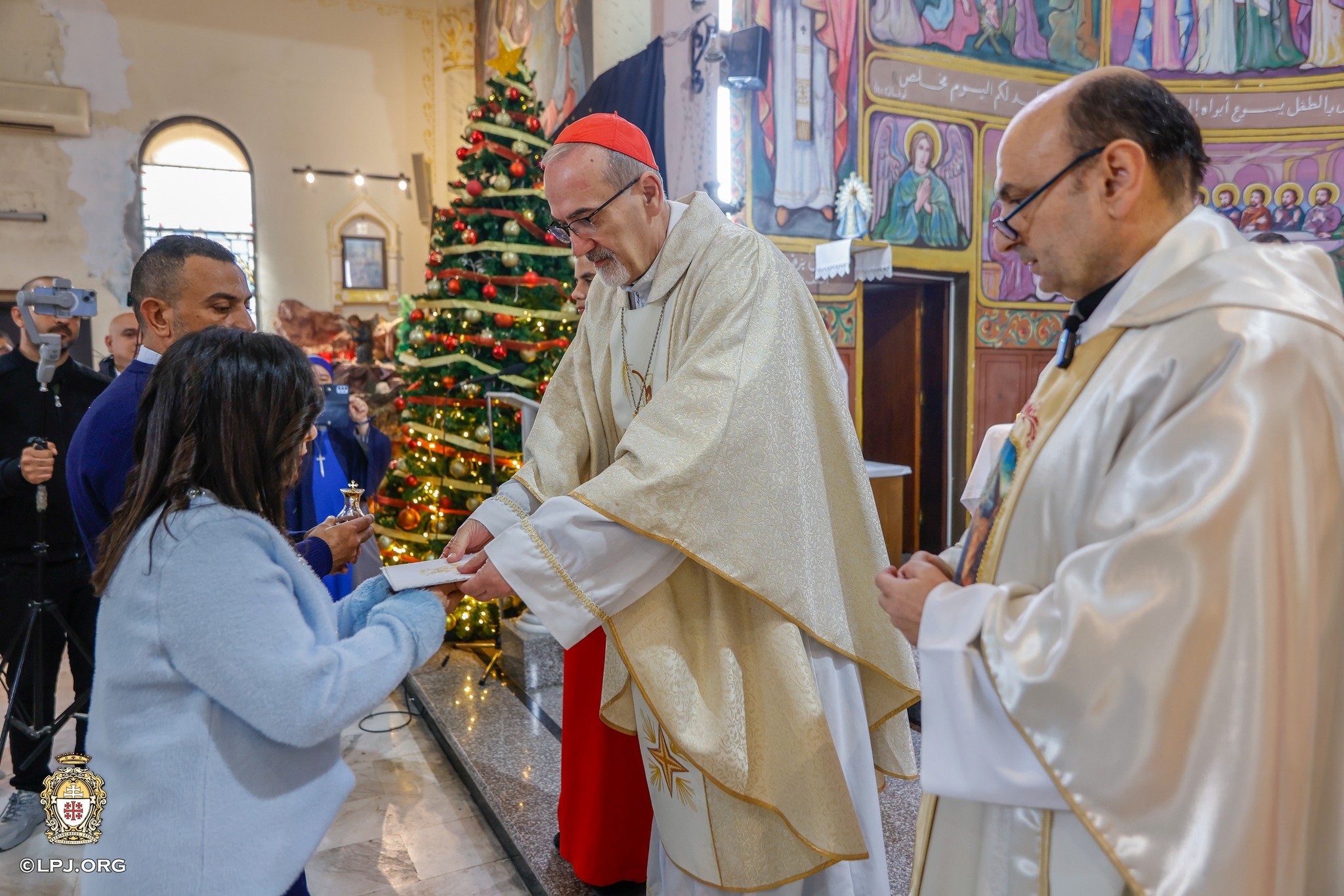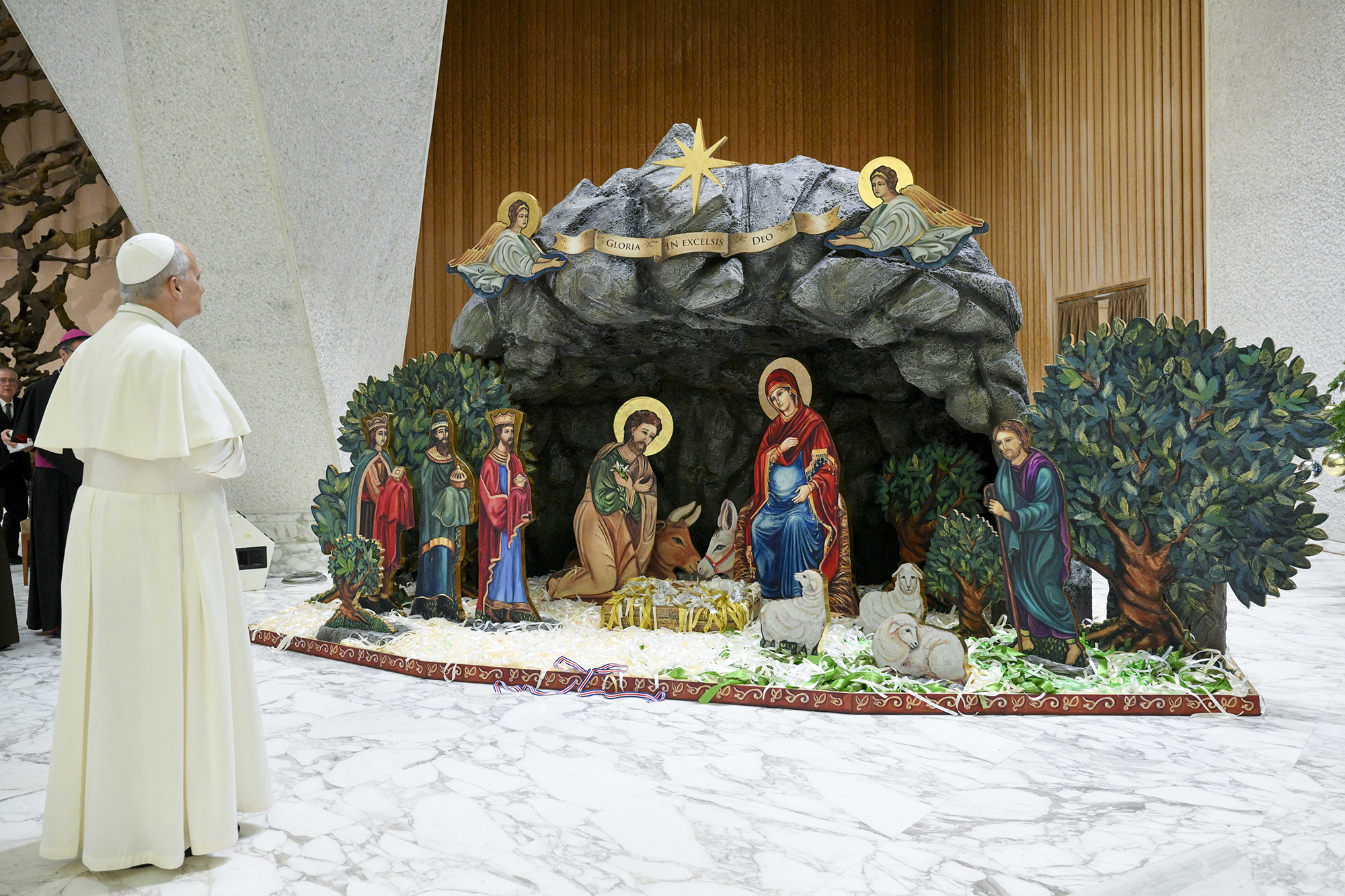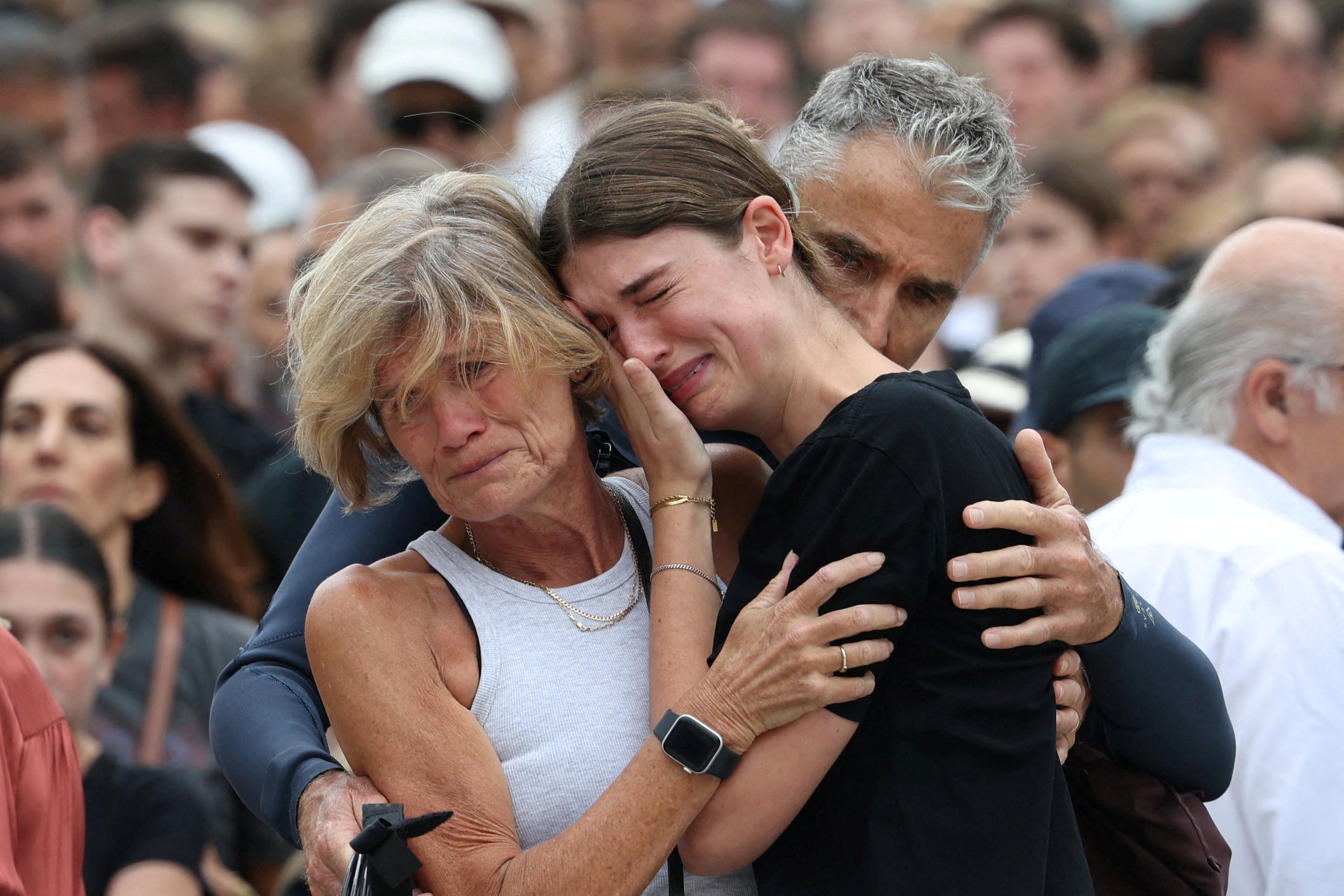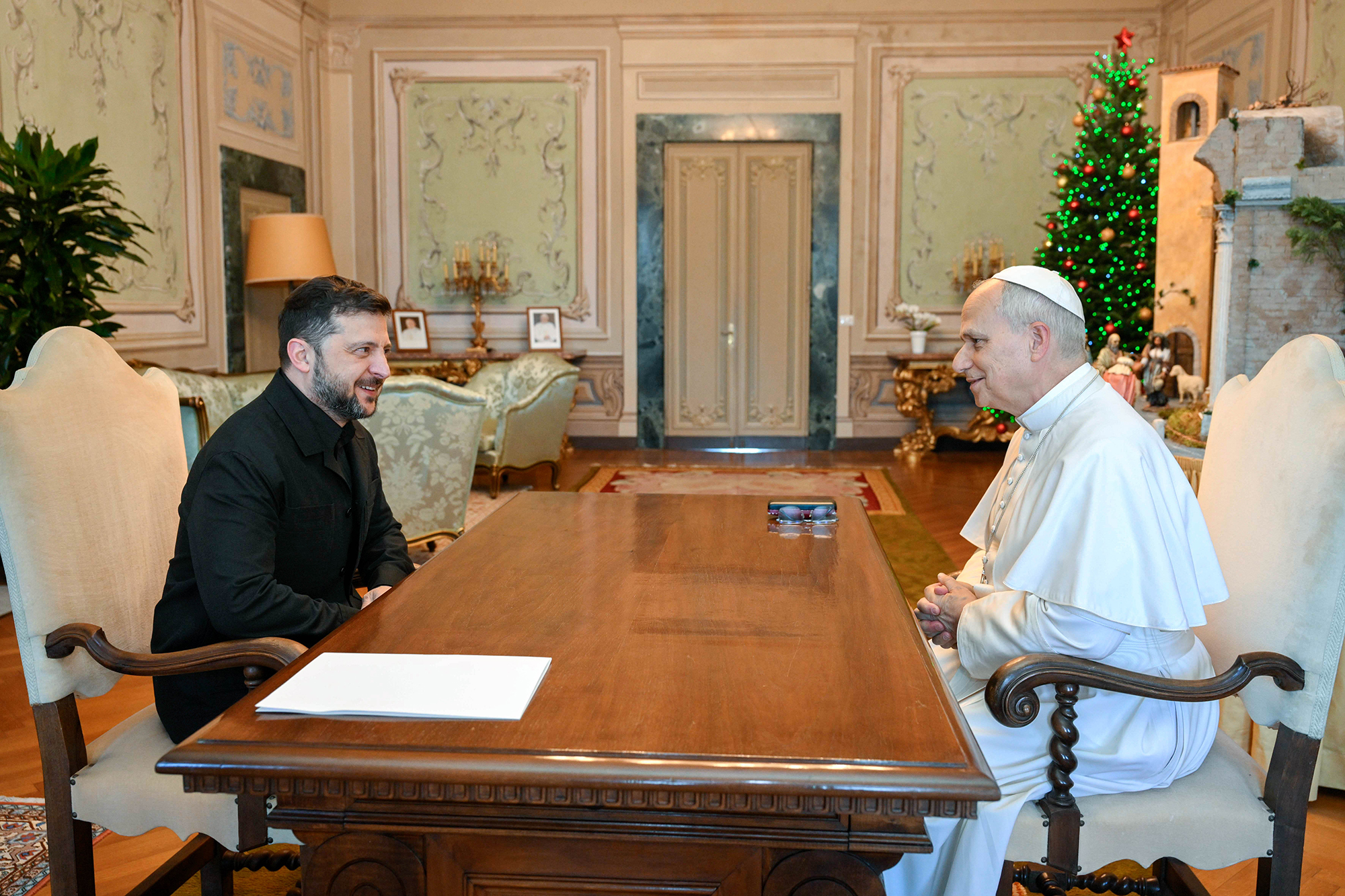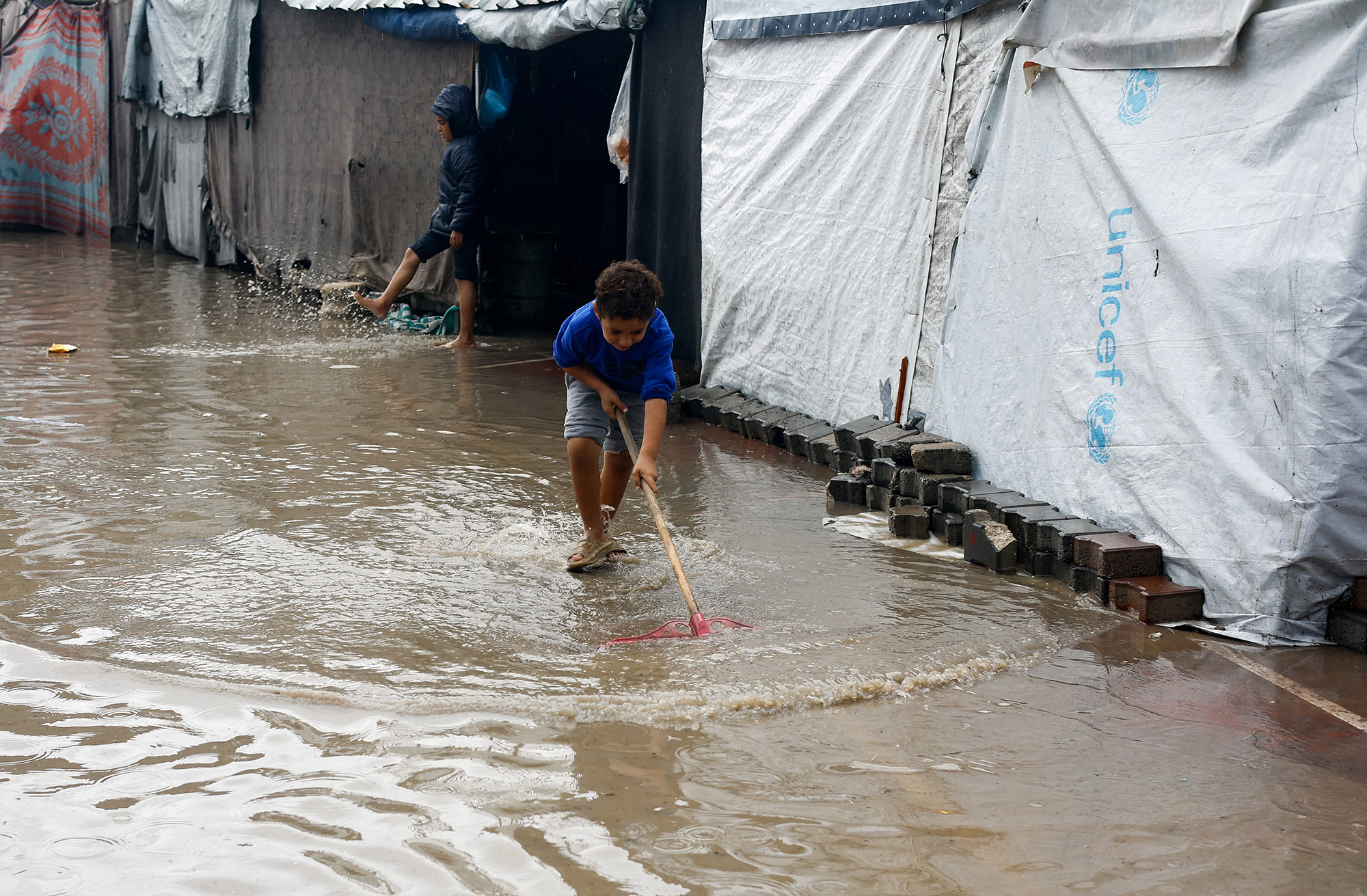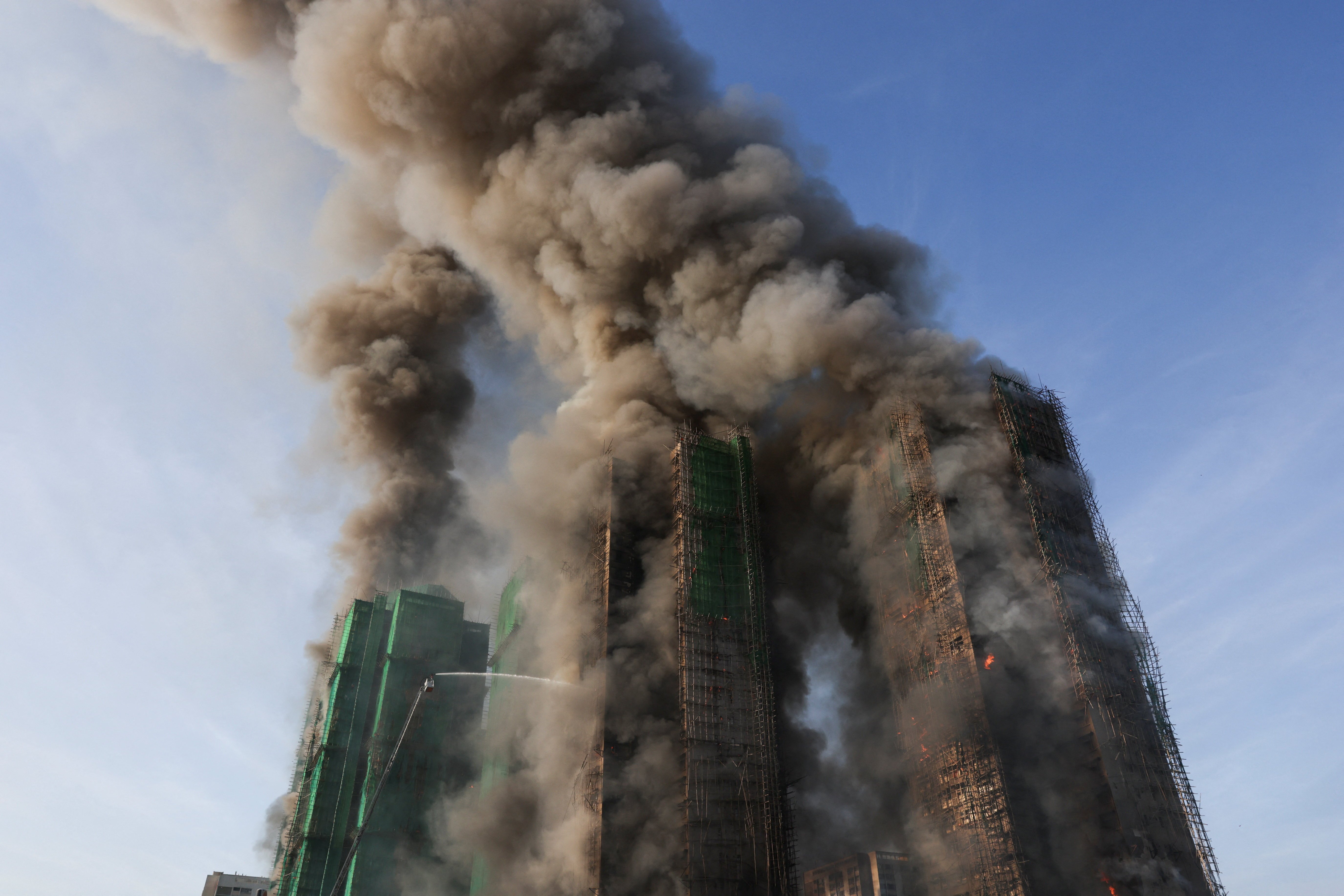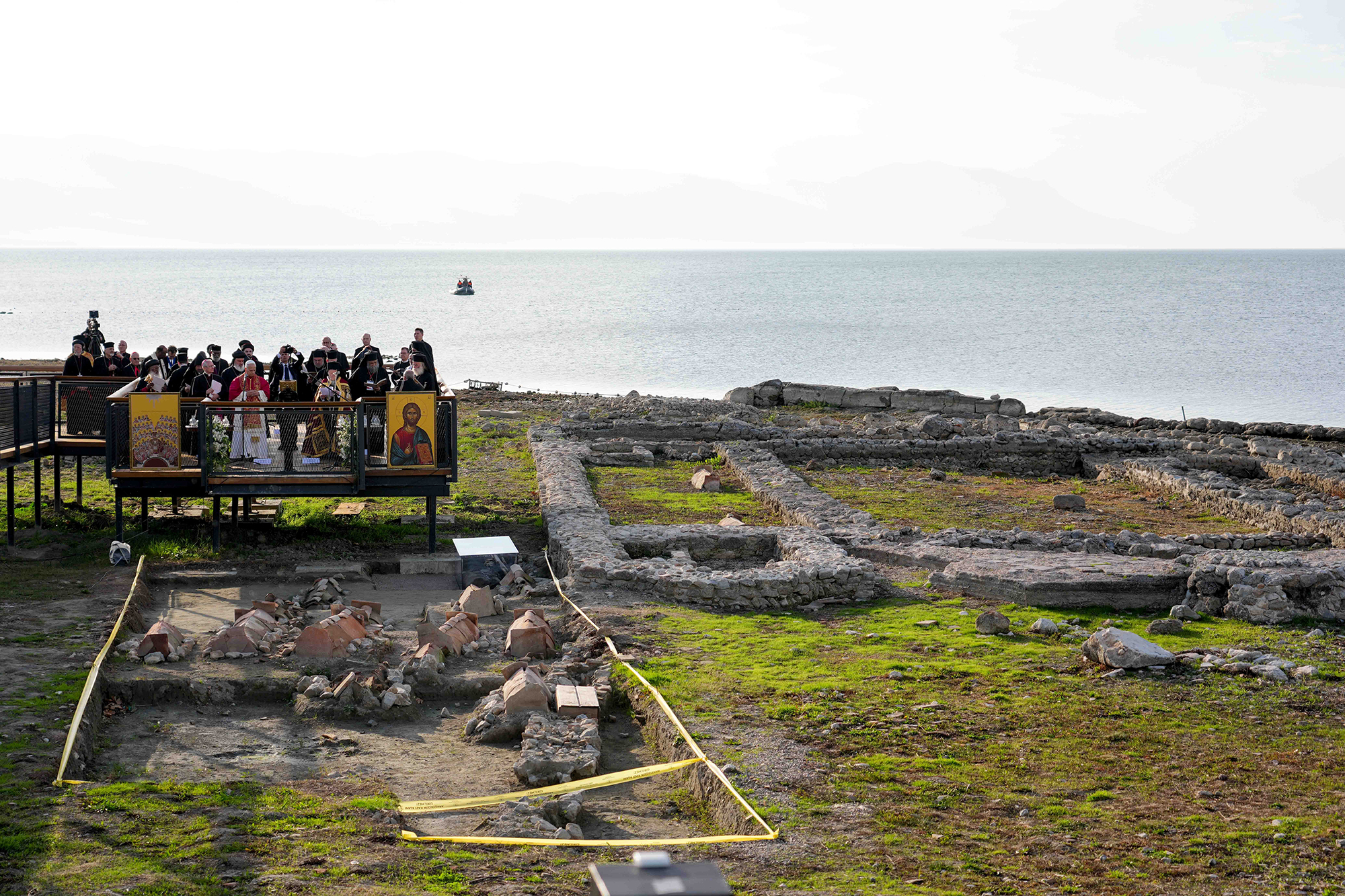Christians in the Holy Land celebrate Easter with ‘no illusions,’ but believing God is ‘guiding history’
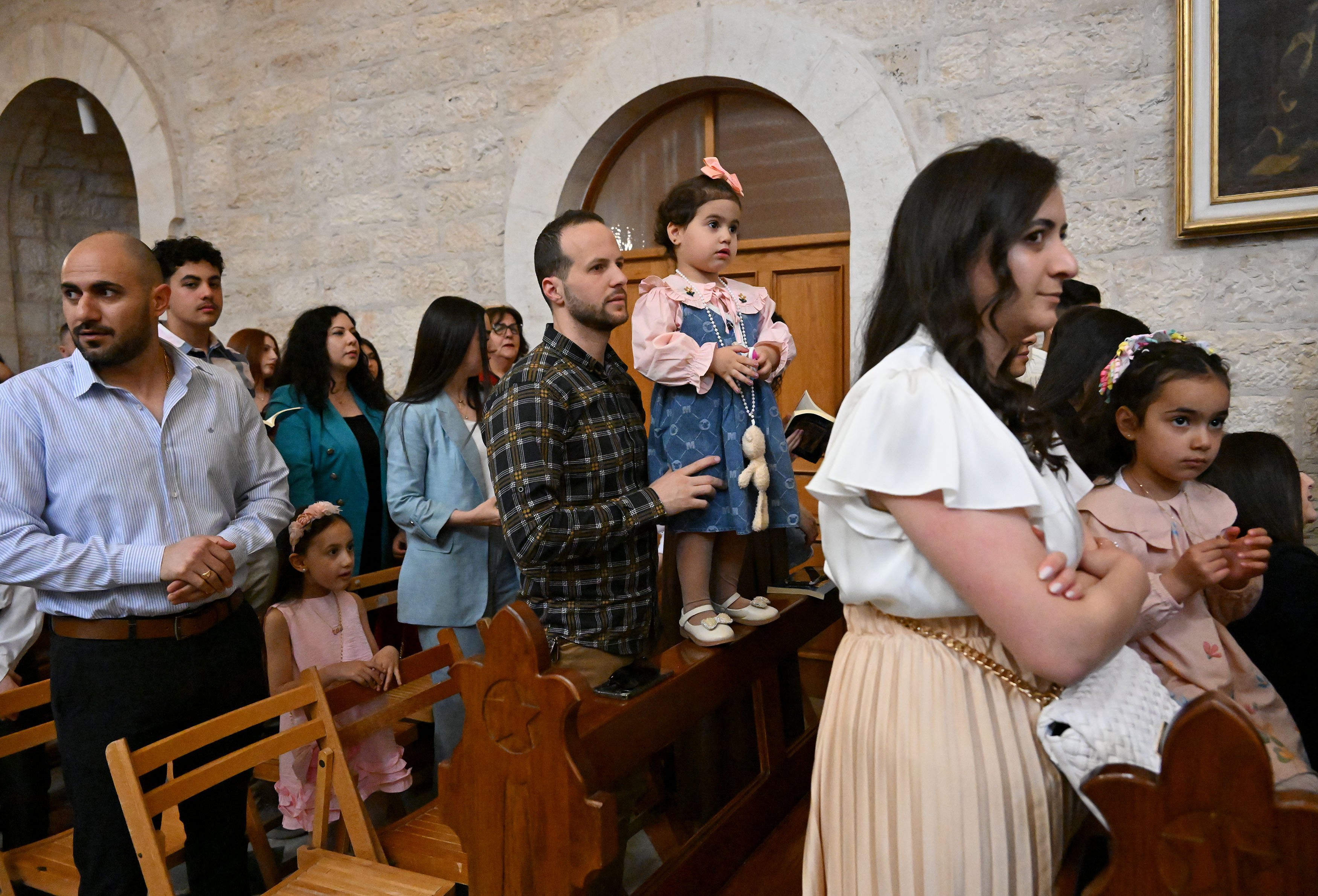
BETHLEHEM, West Bank — The pews of the St. Catherine Church in Bethlehem were full and it was standing room only, as parishioners dressed in colorful Easter finery filled in for the Easter Sunday Mass.
For some, it was a matter of choice and tradition to attend Mass at their local parish with all their extended family members. But many others said that while being only 6 miles from the Church of the Holy Sepulcher, they had been unable to procure the travel permits from the Israeli authorities which would have allowed them to attend the Easter Mass at the holy site where tradition holds that Jesus was crucified and resurrected.
“We did not get permission,” said Roger Salameh, who works for a nongovernmental organization and commented that, at 37 years old, he has never been to the Church of the Holy Sepulcher. Instead, he was attending Easter Sunday Mass with his wife, Claudette Mubarak, 29, and their two young children at St. Catherine. “Of course, we would like to celebrate the Easter Mass at the Church of the Holy Sepulcher, where you feel a deeper connection to God and the significance of the (resurrection).”
Earlier in the week, the Latin Patriarchate of Jerusalem said some 6,000 travel permits had been issued for Easter week for the West Bank Christian community which numbers 50,000.
Videos circulating showed scenes of heavy Israeli security in the Christian Quarter of the Old City of Jerusalem on April 19, Holy Saturday, with confrontations and police pushing Christians, preventing them from reaching the Church of the Holy Sepulcher.
Despite the travel restrictions, the ongoing Israel-Hamas war in Gaza and lack of tourism and pilgrimages affecting the Bethlehem economy, people are already accustomed to living under difficult conditions and have become “desensitized” to the situation, said Louis Jaar, from Bethlehem.
“Do you see anxiety here? There is no anxiety here,” he said.
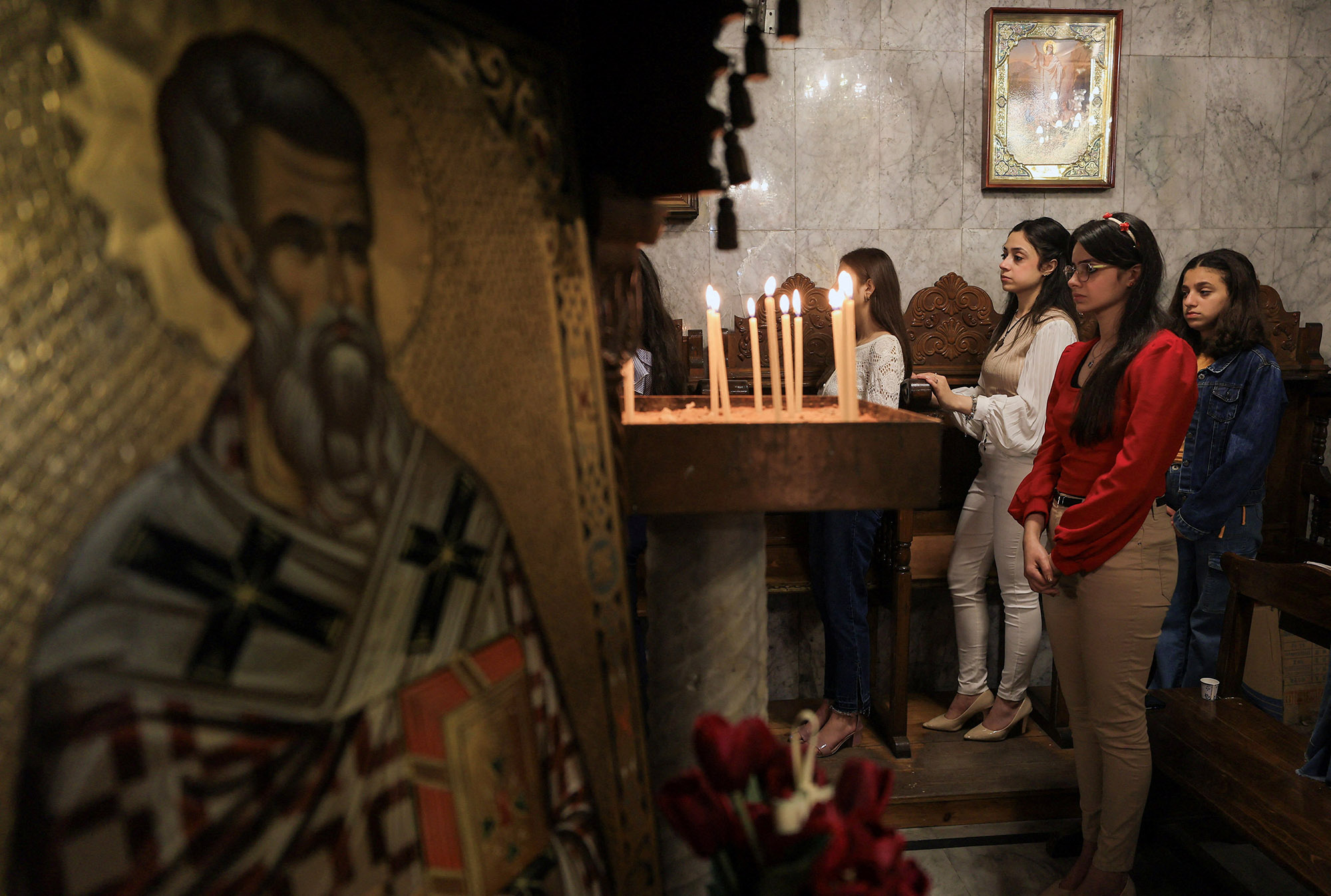
Irene Ghattas-Botto, having just taken a family portrait with her extended family, including her husband, two daughters, mother and two sisters and their families, said they had also all been refused travel permits but were thankful for the Christian atmosphere in Bethlehem, and while praying for peace, reflected on the blessing they had in comparison to the Christians in Gaza.
“We love Bethlehem. Bethlehem is a Christian city. We always pray for peace,” she said.
Coming to Bethlehem from the northern Arab-Israeli city of Nazareth, Fahed, 45, and Maisa, 42, Hawa said they had opted to spend Easter Sunday in Bethlehem rather than at the Holy Sepulcher in Jerusalem after trying to attend the Orthodox Holy Fire ceremony the day before.
“This is Easter, we feel at peace with all despite the complicated situation we are living in,” said Maisa, noting that as she was Catholic and Fahed was Greek Orthodox, they were happy to be celebrating Easter on the same day in 2025.
Thousands of Orthodox believers filled the Church of the Holy Sepulcher for the ancient ceremony of the Holy Fire to have their candles lit by the sacred flame, which they believe to be miraculously produced. The Greek Orthodox and Armenian patriarchs bring forth the fire from the Edicule where, tradition holds, Jesus’ tomb is located.
In his Easter Sunday homily, Latin Patriarch of Jerusalem Cardinal Pierbattista Pizzaballa emphasized that Christ’s resurrection, symbolized by the empty tomb, was not just a celebration of life conquering death, but a call to courageous, compassionate and hopeful witness — especially amid suffering and conflict.
For the Church in Jerusalem, and all Christians today, it is a responsibility to live and proclaim the power of resurrection through love, forgiveness, justice and peace, even in the darkest of times, he said.
“Even and despite the many ‘noes’ of this time, a world increasingly caught in a spiral of fear and revenge, of logics of power and exclusion, we want to be God’s ‘yes’ in this world, those who proclaim through their lives and works that they belong to the world willed and created by God … and who know how to testify to the peace of the Upper Room because they have encountered it,” the patriarch said.
Yet, it is not about being “naïve and visionary,” he said, but rather about “having faith, firmly believing that God is guiding history.”
“We have no illusions. We know what is happening among us and in the world, and we do not have much hope in the ability of those in power to find solutions, which unfortunately seem to be ever more distant. And we cannot but express our concern about a possible further deterioration of the political situation and the worsening humanitarian catastrophe that is unfolding, especially in Gaza,” Cardinal Pizzaballa said.
“I am thinking in particular of our small community, which for many months has become a sign and symbol of solidarity and hope, a small boat anchored to life, in a sea of pain and suffering.”
In remembering those in Gaza, he urged the faithful to strive to help carry the burden of those in need much like the mothers of Jerusalem, Veronica and Simon of Cyrene did for Jesus.
“Let us remember to offer gestures of dignity and care to those in our midst. This is our way of proclaiming life and resurrection,” he said.

